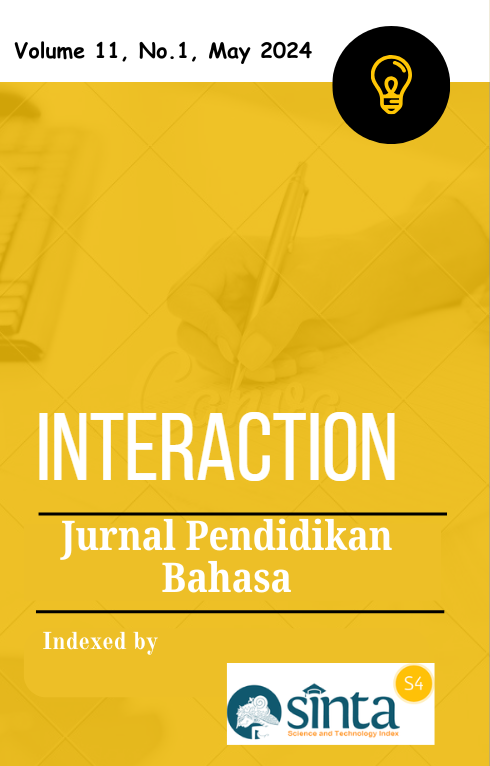Mis-Tagging Phenomena and Impoliteness Expression of Indonesian Netizens: A Study of Cyberpragmatics
Abstract
The Mis-tagging recently is common issue surround Indonesian netizens. Exploding trending topic on social media platform easily often rush to share. This study proposes to describe the mis-tagging phenomena and Impoliteness expression of Indonesia netizens particularly on Instagram. Descriptive qualitative implements as a research method together with cyberpragmatic approach. Source of data were selected comments on Instagrams which describe impoliteness expression. Culpeper’s impoliteness strategies are used for analyzing the research finding. Thus, result of this study describes three strategies on expressing impoliteness; bald on record impoliteness, negative politeness, and sarcasm or mock politeness. Mis-tagging persistently indicate by Indonesian netizens because of uncontrol speed information sharing thus, verifying information before sharing is a key to reduce the mis-tagging phenomena.
Downloads
References
Bogdan, R. and Taylor, S.J., 1990. Looking at the bright side: A positive approach to qualitative policy and evaluation research. Qualitative sociology, 13(2), pp.183-92.
Bliss, L., 2022. ‘Would you rather?’ Weirdness and affect in reaction videos to porn. First Monday.
Culpeper, J., 1996. Towards an anatomy of impoliteness. Journal of pragmatics, 25(3), pp.349-367.
Culpeper, J., 2016. Impoliteness strategies. Interdisciplinary studies in pragmatics, culture and society, pp.421-445.
Febriyanto, T.B., 2023. An Analysis of impoliteness Strategies Used by Indonesia Netizens on Twitter with # Usuttuntaskanjuruhan: A Case Study of Hate Speech. –
Umaroh, L., Kurniawati, N. and Sari, C.A., 2017, April. An Investigation of Young Childrens Politeness Principle. In English Language and Literature International Conference (ELLiC) Proceedings (Vol. 1, pp. 315-319).
Rahardi, R. Kunjana. "Depicting pragmatic meanings of covid-19 hoaxes in social media: cyber-pragmatic perspective." Jurnal Kata: Penelitian Tentang Ilmu Bahasa Dan Sastra 4, no. 2 (2020): 261-272.
Siahaan, R., Saragi, C. N., Sidabutar, U., & Saragih, E. L. (2023). Impoliteness Strategy Used By Netizen In The Comment Column On Nadiem Makarim’s Instragram Post About Online Policy. Innovative: Journal Of Social Science Research, 3(2), 1199-1214.
Subyantoro, S., & Apriyanto, S. (2020). Impoliteness in Indonesian language hate speech on social media contained in the Instagram account. Journal of Advances in Linguistics, 11(2), 36-46
Sukmayadi, V., Suryadi, K. and Rouf, M.F., 2019, June. Cyberpragmatic analysis of Indonesian opposition politicians’ tweets. In Eleventh Conference on Applied Linguistics (CONAPLIN 2018) (pp. 245-249). Atlantis Press.
Yus, F. (2011). Cyberpragmatics: Internet-mediated communication in context. John Benjamins Publishing Company.
https://www.voaindonesia.com/a/urgensi-literasi-digital-tangkal-nastyzen-/6784053.html
https://www.bola.com/indonesia/read/5593442/netizen-indonesia-berulah-lagi-sudah-rasis-salah-sasaran-malah-serbu-instagram-timnas-guinea-khatulistiwa




.png)



22.png)
